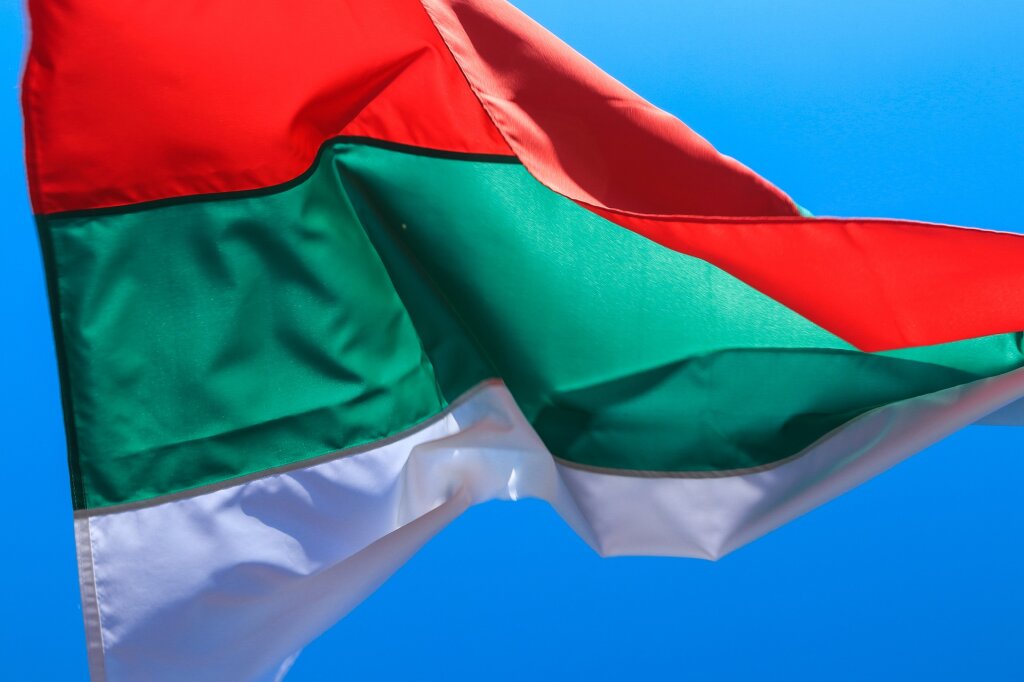The Jordan Center stands with all the people of Ukraine, Russia, and the rest of the world who oppose the Russian invasion of Ukraine. See our statement here.
Venelin I. Ganev is a Professor of Political Science at Miami University of Ohio and Faculty Associate at Havighurst Center for Russian and Post-Soviet Studies.
On October 2, 2022, Bulgarians voted in general elections for the fourth time in eighteen months. At 39%, turnout was at its lowest since 1990—and the electoral race produced a splintered seven-faction parliament in which the largest group, former Prime Minister Boyko Borissov’s GERB, controls only 67 of the 240 seats. It is very unlikely that a governing coalition will be successfully formed, and soon the country’s increasingly apathetic voters may have to go to the polls again.
The agenda around which Bulgarian politics will revolve in the near future may have already been set. During its relatively brief tenure, the government led by Harvard-educated Kiril Petkov (December 2021-August 2022) launched several reforms, the most important of which severed Bulgaria’s energy dependence on Russia. These reforms were denounced by the government’s critics, foremost among them Borissov and the country’s President, Rumen Radev. The key issue underpinning Bulgarian politics is therefore whether the reforms will be reversed or not.
The three general elections held in 2021 (April, July, and November) effectively brought to an end the so-called "Borissov era.” That period began in 2009, when GERB scored the first of its several electoral victories. The status quo established during that era displayed many of the syndromes of democratic backsliding observable across Eastern Europe in the 2010s: concentration of all decision-making power in the hands of a single leader; systematic efforts to subdue independent media and NGOs; consolidation of partisan control over key judicial appointments and promotions—and the institutionalization of various corrupt practices whereby public and European money were regularly channeled towards regime-friendly networks of shady entrepreneurs.
When Borissov consorted with EU leaders, he generally refrained from the aggressively anti-Brussels rhetoric championed by the likes of Orbán and Kaczyński, instead routinely attempting to burnish his pro-Western credentials. In reality, however, his foreign-policy decisions promoted strategic Russian interests. He repeatedly reassured Vladimir Putin that Moscow’s bid to build an astronomically expensive nuclear power plant in Bulgaria would be given a green light, and reliably supported the Kremlin’s various pipeline projects in the Balkans. A succession of GERB-led cabinets never tried to diversify gas and oil supplies to Bulgaria; as a result, the country remained entirely reliant on Russia. Furthermore, Borissov personally made sure that, when dealing with its Bulgarian counterparts, Gazprom always gets the deals it wanted.
It was this status quo that Petkov’s cabinet sought to change. When his newly formed party, We Continue the Change (WCTC), won a plurality of votes in the November 2021 elections, Petkov was able to cobble together a coalition of strange bedfellows: WCTC entered an alliance with Democratic Bulgaria (another pro-Western party); There Is Such a People (a populist formation led by Slavi Trifonov, a charismatic TV entertainer); and the traditionally pro-Russian Bulgarian Socialist Party.
Some of the reforms the new government envisioned remained permanently stalled—for example, the effort to restore the independence of the judiciary and to launch meaningful anti-corruption measures. Other reforms yielded better results: pensions were increased, access to free childcare was considerably expanded, and, more generally, the coalition’s social agenda was coherently pursued. But the government’s most noteworthy accomplishment was to wean the country off its total dependence on Russian energy supplies.
That such a success would be possible was not at all clear when Russia unleashed its war on Ukraine on February 24, 2022. In the immediate aftermath of the invasion, the Bulgarian government’s attitude was marked by strategic ambivalence. On the one hand, Petkov declared that no weapons will be delivered to Ukraine. On the other hand, his coalition condemned the war and endorsed the EU-imposed sanctions on Russia. Moreover, within several weeks, exports of Bulgarian-made military equipment to countries like Poland and Slovakia tripled. Undoubtedly, Ukraine was the final destination of these exports.
The Bulgarian cabinet’s behavior clearly annoyed the Kremlin. Eleonora Mitrofanova, Russia’s ambassador to Sofia, vociferously chastised the ruling coalition in daily social media postings and TV interviews. Rather undiplomatically, she asserted that Petkov did not represent “the Bulgarian people” and was undermining “traditional” Russian-Bulgarian “friendship.” Moscow’s attitude hardened even further in late April, when Gazprom issued an ultimatum: Bulgaria could either pay for energy supplies in rubles or the supplies would stop. Since this demand violated both the legal contracts signed by the Russian energy giant and EU policies, it was rejected—and gas deliveries ceased.
It was at this juncture that Petkov’s government engineered its decisive turnabout. Apparently, for some time, WCTC and its allies had been working on “plan B.” In early May, they implemented it with remarkable dispatch. The cabinet announced that it has purchased, at a lower price, sufficient quantities of pipeline-delivered gas from Azerbaijan—and had also arranged, for the first time ever, the import of liquified gas from the United States. In addition, seventy employees of the Russian embassy were expelled “for activities incompatible with their diplomatic status.”
Petkov’s fall followed soon thereafter. Trifonov declared that he was leaving the coalition, then joined the GERB-led opposition in a no-confidence vote which toppled the reformist cabinet. When subsequent efforts to form a new government failed, President Radev disbanded parliament and scheduled elections for October 2.
In the course of his career, Radev has acquired the reputation of a politician sympathetic to Russia. During his first term (2016-2021), he rarely made openly pro-Kremlin statements. During his 2021 re-election campaign, however, he asserted that “Crimea is Russian,” while in February 2022 he insisted that Bulgaria should not take sides in the Russo-Ukrainian war. Finally, he stridently condemned the government’s decision to reject Gazprom’s ultimatum.
One of the Bulgarian constitution's most controversial features is that, even though it establishes a parliamentary democracy, when parliament is dissolved the country is run by caretaker cabinets appointed by the President. In August 2021, following Petkov’s downfall, Radev took advantage of this prerogative and installed a government composed of bureaucrats loyal to him. From day one, the new ministers made it their priority to undo the previous government’s energy policy. In their public statements they pinned all problems facing Bulgaria—rising utility and gas bills, inflation, wage stagnation—on the decision to cut ties with Gazprom. The new Minister of Energy declared that the deterioration of Bulgarian-Russian relations was Petkov’s fault. The new Minister of Defense announced that Gazprom is entitled to file and win a breach-of-contract lawsuit against Bulgaria. All ministers constantly complained about “the chaos and devastation” that their predecessors allegedly left behind. “There is no alternative to Gazprom” quickly became the leitmotif around which the public rhetoric of Radev’s minions coalesced.
The overwhelming majority of Bulgarians who voted on October 2 cast their ballots for mainstream parties that do not question the country’s NATO and EU membership; the only openly pro-Kremlin party, Revival, received 10% of the vote, while a newly formed party supported by Radev barely cleared the 4% electoral threshold. On the other hand, however, the factions of the pro-reform parties are not large enough for a majority coalition. Perhaps the most intriguing shift in the post-elections landscape was GERB’s own evolution: Borissov now characterizes Russia as an aggressor state and aspires to form an “anti-Putin coalition” led by his own party. Whether such a coalition will materialize is impossible to predict at this point. Regardless, the two options facing Bulgaria have been clearly delineated: the country can either persist in the quest for energy independence, or resign itself to the Kremlin’s meddlesome presence.



